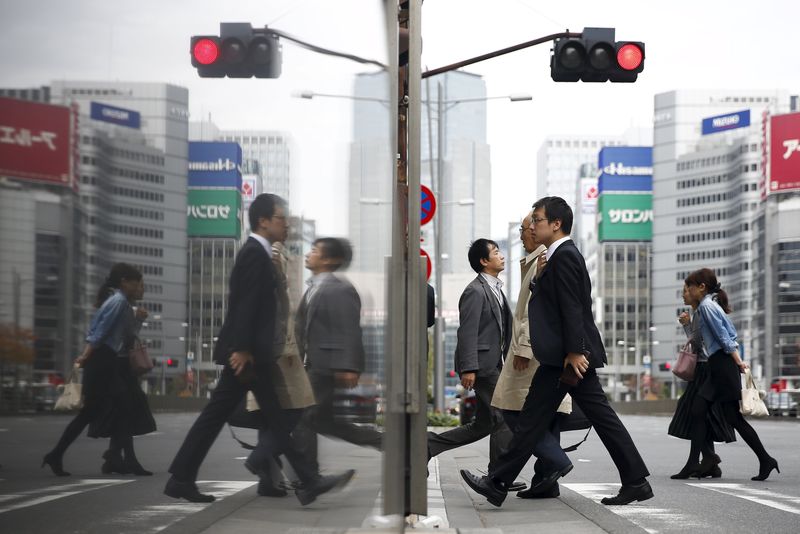Investing.com - Japan's wholesale inflation rate continues to decelerate, marking its seventh consecutive month of easing due to declining energy utility costs. This trend was highlighted in the central bank data released this Thursday and signals that the factors previously contributing to higher consumer prices are subsiding.
Japan's producer price index, a critical indicator of inter-company pricing for goods and services, observed an annual increase of 3.6% in July. Although this figure marginally exceeds median market projections of a 3.5% rise, it still represents a slowdown from June’s reading of 4.3%.
Since reaching its zenith at 10.6% in December, the pace of wholesale inflation has been steadily decreasing over seven months according to recent data analysis.
This downward trajectory reaffirms the Bank of Japan's prognosis that we can expect consumer inflation rates to further decline as global commodity prices retreat from their peak levels last year.
In July specifically, governmental interventions played a significant role in moderating price escalation by offering subsidies designed to offset increased household gas and electricity utility fees; these measures effectively reduced overall growth by 0.6 percentage points according to available data.
Yen-denominated import costs also saw a marked reduction with prices falling by an impressive 14.1% compared with figures from July last year - representing four straight months of decrease – thereby alleviating worries about high import bills for businesses dependent on imported raw materials.
